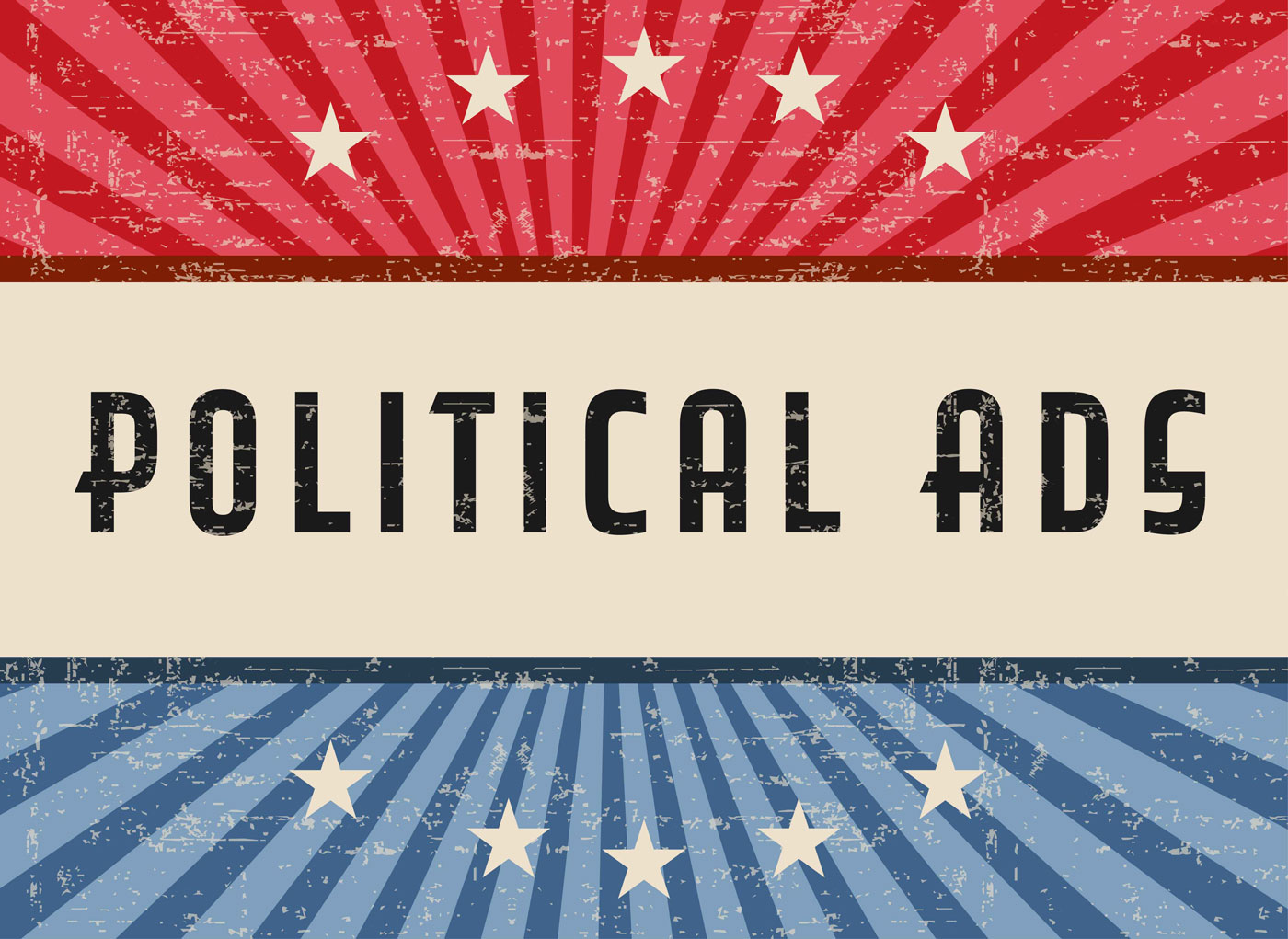COMMENTARY: Combat Facebook’s false advertising with media literacy

Humans are a gullible race. We tend to look for a crowd to follow, and Facebook knows it.
That is why Facebook chose to run not only political ads but also to publish ads rife with lies and exaggerations. These ads often cater to people of some political affiliation, even manipulating people into believing something to be true, no matter how far-fetched the article might be.
Some say Facebook runs ads promoting President Donald Trump in a biased manner while others say the platform runs ads promoting more liberal campaigns and censors pro-conservative posts while accepting left-leaning ones. Nevertheless, Facebook’s political advertising has proven to be problematic in today’s society.
During the 2016 presidential election, Cambridge Analytica, parent company Strategic Communication Laboratories and data scientist Aleksander Kogan harvested data from millions of Facebook users for political advertising. Wired.com’s Issie Lapowsky writes the organization bought data stored on Facebook to influence American voters into voting for Donald Trump as president; the data was collected and used without consent from those users.
Facebook did ban those responsible, but the damage had already been done. Facebook’s stocks plunged, Congress summoned CEO Mark Zuckerberg to testify and people questioned the integrity of privacy rights of online users.
Facebook’s policy on ads about social issues states, “advertisers can run ads about social issues, elections or politics, provided the advertiser complies with all applicable laws and the authorization process required by Facebook. Where appropriate, Facebook may restrict issue, electoral or political ads.”
This suggests that Facebook has a certain system by which it decides whether political ads align with Zuckerberg’s political views. To make matters worse, Facebook has recently announced that they will not fact-check political advertisements.
Emily Stewart, in her article on Vox.com, provides examples of political ads fabricated in both Republicans’ and Democrats’ favors. Although Facebook did remove an ad alleging that Sen. Lindsey Graham favored the Green New Deal, the social media outlet said they removed the ad because it was posted by a political action group and not a politician. If Facebook would remove an ad from a group of activists, then why keep an ad from a politician?
Facebook, as a social outlet, has no business promoting one side of the political line or the other, especially through political advertisements. In Arielle Pardes’ article on Wired.com, Zuckerberg claims “political ads are an important component of free speech – an amorphous principle in the context of a private company – especially for candidates and issues that receive less media coverage.”
Political or not, advertisements are not protected by the First Amendment of the U.S. Bill of Rights. Ads are made for commerce, not free speech, especially not the kind that manipulates people into believing lies. That is, in part, why Twitter Chief Executive Jack Dorsey has opted out of political advertising. In addition to Twitter, platforms such as LinkedIn, Pinterest, Microsoft and Twitch also will not show political ads. Google, however, shares political ads in some states and not others.
In Tim Wu’s article in the New York Times, he questioned Nick Clegg and Mark Zuckerberg, both of whom have received backlash from Facebook’s own users. Clegg, the company’s vice president for global affairs and communications, defended Facebook’s decision to run political ads without fact-checking by comparing it to a political tennis court, but, in Wu’s eyes, Facebook better resembles a steel cage with Zuckerberg asserting the necessity for political ads to “help political challengers take on incumbents.” Wu continues to write “Mr. Dorsey and most of the rest of Silicon Valley are right to steer as far clear as they can” of political advertisements.
Tessa Jolls and Michele Johnsen’s article in the Hastings Law Journal cautions people “must stop wishful thinking” and warns others will listen to false claims, no matter how outlandish. Rather, people should teach others to produce content for social media more responsibly.
There is a way to determine the legitimacy of such an article or ad: testing its media literacy. Media literacy, by definition, “is about helping students become competent, critical and literate in all media forms so that they control the interpretation of what they see and hear rather than letting the interpretation control them.”
Political content, especially ads, should be measured against the CRAAP test. The content in question should fulfill evaluation criteria relating to its currency, relevance, authority, accuracy and purpose (hence the acronym CRAAP). If any political content fulfills these criteria, there may be significant credibility to it. Otherwise, it is just clickbait, if not fodder for extremists.


@Frank Baker: Actually, no. Political ads are advertising, and advertising of any kind is not protected by the First Amendment because advertising means commerce. Commerce and speech are two separate matters.
You are incorrect political ads are considered free speech thus they cannot be censored and broadcasters cannot refuse to broadcast them.